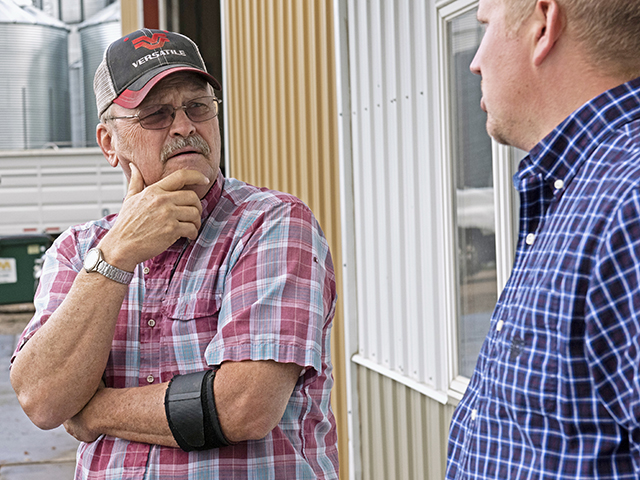Family Business Matters
Role Changes
Of the many challenges in handing the management of a farm or ranch business to the next generation, perhaps the greatest hurdle is psychological.
While the incoming generation's knowledge and skills are important in the succession process, just as critical is the senior generation's mindset, specifically the way its members conceive of their future identity and role.
If you have been a lifelong farmer or rancher, "who" you are has been embedded in "what" you do. In preparing and caring for fields, crops, equipment and animals, you wear the hat of agronomist, animal buyer and seller, veterinarian, mechanic, equipment operator, input purchaser, risk manager, commodity marketer -- and that is just a portion of the list. When you prepare to stop doing those things, how do you begin to think about your purpose and your role?
That question has vexed a good many people over the years, and the inability to come up with a good answer often causes the senior generation to hold on to day-to-day decisions much longer than they should or ignore the important, long-term issues facing the business. The younger generation becomes increasingly frustrated, and conflict ensues.
Family members on the cusp of handing off the daily operation of the business should conceive of their roles differently. Consider the following two role changes.
P[L1] D[0x0] M[300x250] OOP[F] ADUNIT[] T[]
FROM PRODUCER TO PARTNER
This suggests a transition from doing the daily work to a role of protecting or improving your investment in the business. Instead of being in the middle of daily activities, you are -- through ownership of land or equipment -- rooted in the ownership system of the business. Your primary job changes from telling someone how to plant corn or work cattle (although you surely have some wisdom to offer), to how to achieve a good return on the capital invested.
Buying or trading land, determining appropriate rents, improving operating agreements, managing estate taxes or working on a strategy to gift or sell equipment to the next generation should become the focus.
FROM FOREMAN TO CHAIRMAN
A foreman is someone who directs and supervises workers. As you built your business over the years, you hired, supervised and rewarded your team for accomplishing goals, such as having equipment ready, timely planting, managing irrigation, working long hours to harvest the crop, feeding livestock or poultry, and trucking the product to market. As foreman, you guided the growth of the farm.
But, being involved in a multigenerational business eventually requires someone to act as a chairman. A chairman oversees the strategic communication of the organization, helps establish policies and fosters good long-term decisions for the business. Someone needs to pay attention to family-member entrance and exit policies, family compensation and benefits, strategic investments and good communication processes between those on and off the farm, especially if off-farm family members will own part of the land or business.
Our rural communities are full of estranged families who had trouble holding the farm together, in part because members of the senior generation did not address or allow the discussion of strategic, long-term family communication and governance. Those members expected or hoped "it would all work out," and it didn't. And, part of why it didn't work out is because the necessary work of a chairman was neglected.
Changing your role is not easy. You have to watch others perform the work you spent decades perfecting. Your input in daily activities becomes less important. You even go through a grieving process. But, new roles are needed. Becoming a partner and chairman offers new challenges and rewards in the succession journey.
**
-- Write Lance Woodbury at Family Business Matters, 2204 Lakeshore Dr., Suite 415, Birmingham, AL 35209, or email lance.woodbury@kcoe.com.
[PF_0521]
(c) Copyright 2021 DTN, LLC. All rights reserved.




